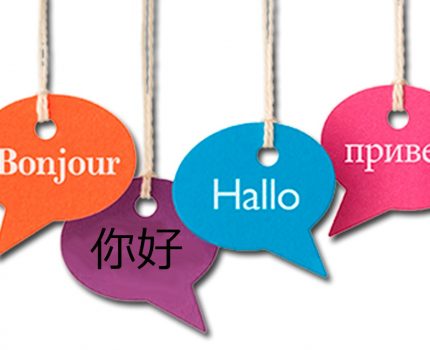Myth Zero: Why hire human translators when there are machine translation + AI services and plugins?
A human translator will produce a copy that accurately conveys the original meaning, a human copywriter will use your original copy as a basis and create content to meet its readers’ expectations. Machine translation is still likely to miss the contextual and cultural meanings hidden in the text. Speaking of content aimed at attracting people from a different culture to your product, it needs to be able to market your original idea in the most appropriate wording and syntax.
If your business is on a budget, probably free translation from AI or Google Translate is better than nothing, But if you want your website to market your product or services and sell well on a long-term basis, human specialists are a must. Well, there are a lot of AI services generating content and images, and still we want human designers and writers. Because humans are still better.
Myth 1: Localisation = Translation
Many would think localisation of a website is nothing but translation of the texts, interface elements and some other visual bits. At maximum you might decide you need a translator and a coder to upload new content and there it goes.
The thing is, everything is getting more and more complicated with the advances of web-technologies. There are complex web-applications behind your front end, calculators, forms and what not.
Let’s make it clear: it doesn’t take just a translator to set, say, a Russian or a German version of your website.
Consider a whole team of specialists depending on how complex a technology your website is built upon. A programmer, a designer, a coder, a translator (and an editor), an SEO and a project manager – that would be a good start.
Myth 2: Any speaker of the target language can perform localisation job
Hope, you know, that translators are professionals. Yes, they are mostly native speakers, but that doesn’t mean that any native speaker can be a translator. There are skills to it that need a proper education, sometimes extra training and at least some experience. Besides, when localising a website you need not just translation of the text or the interface. It is SEO that will go first! Keyword research in the internet of the country you localise your website for is a must. When the keyword list is ready you start to build the content in the target language. Apart from that, many elements of your original design will have to be transformed to make users feel “at home” when using your navigation or forms.
And so, localisation means not just translating your texts and buttons, but actually developing a new copy and a new interface. The translator you hire needs to know the peculiarities of the localisation process, design, SEO and usability basics, saying nothing of their exceptional command of both languages, especially of the native one to be able to write a perfect copy.
Myth 3: The cheaper the better
Long term investment is very important. Your website software can change with time, your texts will need updates sooner or later as well as the design of the whole project. With each new change of your website it should be syncronized along with all the language versions you have. So it seems more reasonable to have a localisation team at hand instead of rushing in search of new people every time you need upgrades.
Cheap job doesn’t always mean bad quality. But it surely doesn’t mean long term partnership with a good team as well.
Myth 4: Proofreading is an unnecessary luxury
An inexperienced client might think proofreading is a waste of money and time if the translator is well-paid. Even if you hire a top professional for developing a copy, you still need an editor, who will not just proofread the translated content, but also compare the result with the original for consistency and usability. Ask your language service provider if they offer editing / proofreading. If you have two translators on the project they can proofread each other’s copies at least.
Myth 5: The best sample translation will guarantee the best localisation
Translation samples are just indicators of a translator’s command of the language pair. They do not show you how good a copy in a target language you will get nor the SEO skills. Besides, any agency will be happy to offer you the best translators for samples but you can’t be sure they will really participate in the project.
Always make sure that the sample translator will manage the process of developing a copy. Try fo find out if they have necessary SEO skills just asking questions about the process and details.
Need a quote?
Contact us from our website, by phone: +7.902. 6592770 or Whatsapp

